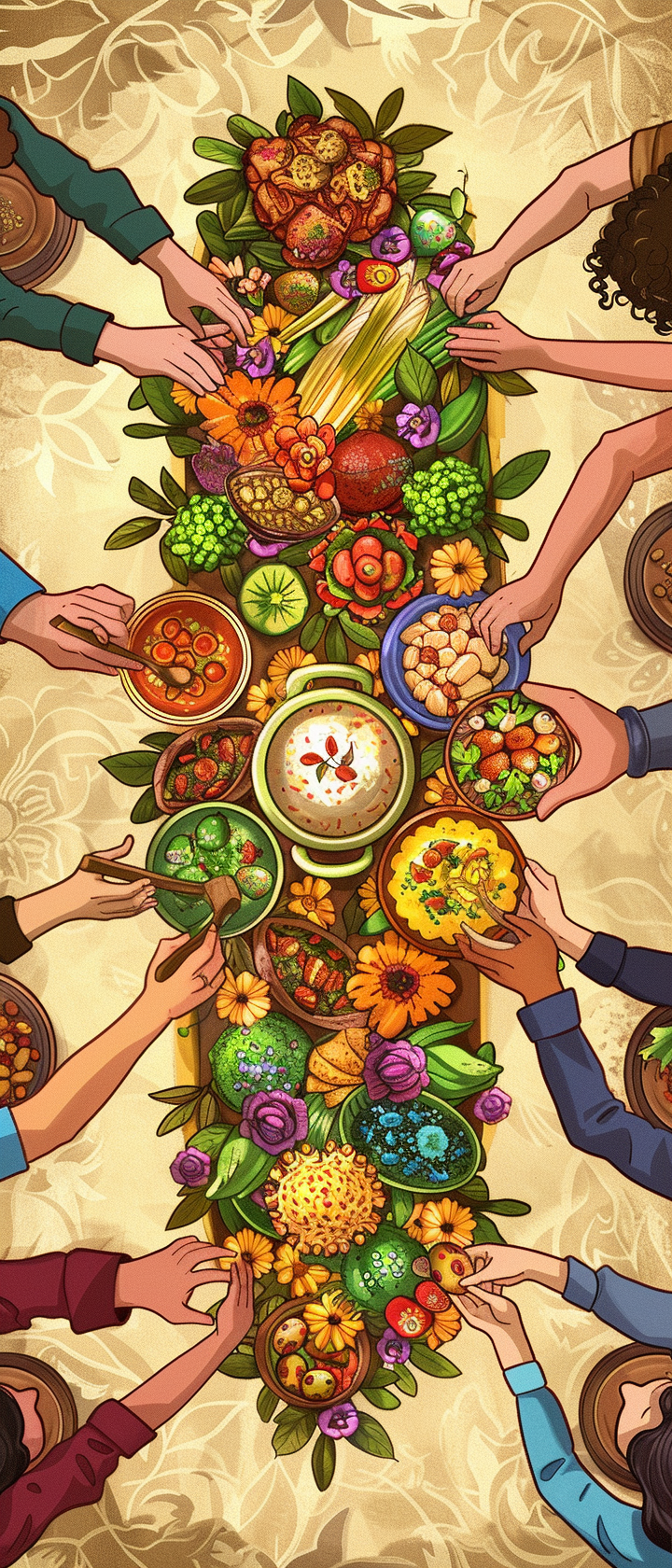Week 25: Celebration and Navigating Holidays and Traditions

Embarking on Week 25, we’re drawn into a season of celebration, discovery, and unity. It’s an opportunity to reflect on and appreciate the evolution of our beliefs, as we welcome the allure of fresh perspectives and opportunities.
Celebrating Your Journey
Imagine yourself at a pivotal juncture in your spiritual journey, pausing to look back at the intricate path that led you to this moment. This is a time for introspection, a chance to appreciate the rich mosaic of your belief system as it has transformed over time. The vivid colors of personal development shine brightly, with each shade representing a distinct experience that has contributed to your spiritual growth. It’s essential to honor these achievements, as they illuminate the way forward, guiding you like constellations in the night sky.
Cultivating Tradition and Festivity
As our journey progresses, we venture into the vibrant realm of tradition and celebration. Envision yourself amidst a flourishing garden of traditions, where customs and rituals grow with the beauty and fragility of flowers. Some of these traditions are deeply ingrained, while others are budding with new life. In this garden, you wield the power to nurture the practices that resonate with your soul, trimming away those that no longer align with your evolving beliefs. Through this attentive cultivation, you’ll find joy in forging new rituals, each adding a unique stroke to the masterpiece of your spiritual development.
Embracing a Cross-Cultural Feast with Loved Ones
Our path now leads us to a cross-cultural banquet, encircled by the warmth of family and friends during the festive season. The table is lavishly set with a mosaic of beliefs, offering a feast of perspectives as diverse and rich as the dishes served. In the company of loved ones, you’re presented with the delicate task of navigating through a variety of viewpoints. This gathering offers a precious opportunity to build understanding and empathy, serving as the foundation for meaningful dialogue and connection. Envision these conversations as rivers of comprehension, flowing through the terrain of mutual respect and deep-seated bonds.
A Week of Wonder and Creativity
Week 25 extends an invitation to delve into the essence of celebration, tradition, and kinship with an open heart and inventive spirit. Together, we’ll embrace the challenge of blending your evolving beliefs with the joyous rhythms of life’s festivities. This journey is not just about acknowledging change but about actively participating in the creation of a spiritual landscape that reflects your true self, adorned with the beauty of understanding and the richness of shared experiences.
Journalling Questions for the Week
Imagine the vibrant tapestry of your spiritual journey as described in the reading. What are some of the “threads” or experiences that stand out to you, shaping your evolving beliefs?
In the garden of traditions, envision the customs and rituals blooming like flowers. Which of your current traditions resonate most with your evolving beliefs, and how do they contribute to your spiritual growth?
Visualize yourself at a cross-cultural feast during a holiday gathering, surrounded by family and friends with diverse belief systems. How can you foster understanding and empathy to bridge the gap between different perspectives?
Reflect on your own experiences of creating new rituals, as mentioned in the reading. How have these new rituals enriched your spiritual journey and helped you harmonize your evolving beliefs with tradition?
Consider the concept of celebration and its role in acknowledging personal growth and milestones, as described in the reading. What are some milestones in your spiritual journey that you’d like to celebrate or commemorate?
Explore the idea of “harmonizing your evolving beliefs with the rhythms of life’s celebrations”. How can you apply this concept to upcoming celebrations or holidays in your life?
Summarize the overall impact of this week’s reading on your perspective and approach to celebrating holidays, traditions, and family gatherings in light of your evolving beliefs.



